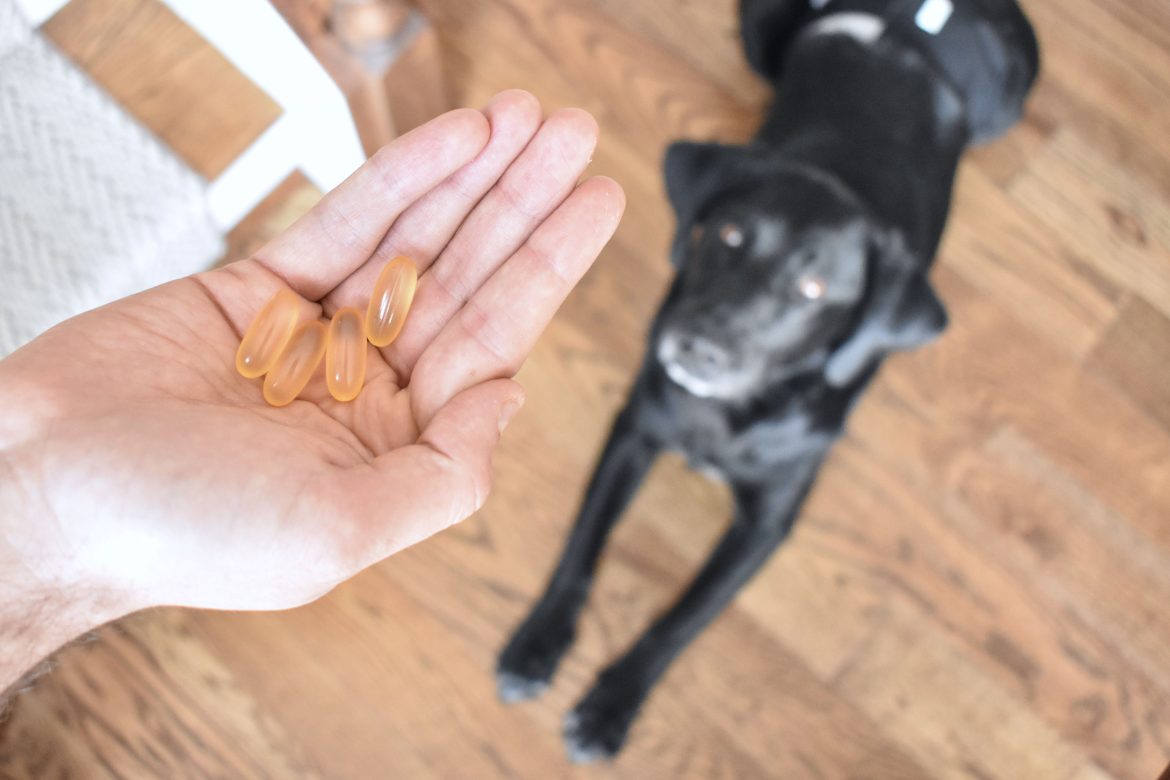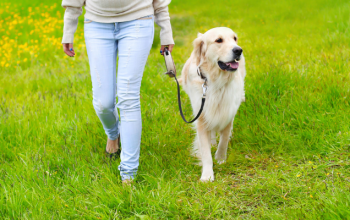Omega-3 and omega-6 fatty acids are two groups of fatty acids. They’re nutrients in dog food to support normal physiologic function, cell membrane structure and cell function.


These fatty acids are known as polyunsaturated fat (PUFA). They’re classified as essential fatty acids (omega-6 are essential for dogs of all ages, while omega-3 are essential for puppies), meaning your dog’s body cannot produce them on its own. So, it’s important to ensure they get the right amount from their diet.
Omega-3 Fatty Acid for Dogs
Dogs rely on omega-3 fatty acids throughout their lifespan, but especially during gestation and early development. Two common and beneficial fatty acids added to pet food are Docosahexaenoic acid (DHA) and Eicosapentaenoic acid (EPA).
Fish and seafood are the most common sources of DHA and EPA. Coldwater fish that rely on elevated amounts of body fat for warmth are often an especially good source of omega-3 fatty acids. These fish include:
- Salmon
- Tuna
- Herring
- Mackerel
- Anchovies
- Sardines
Alpha-linolenic acid (ALA) are plant-based omega-3s found in high amounts within plant sources like flaxseed and canola oil. Although ALA fatty acids cans can provide some health benefits to your dog, EPA and DHA are by far the preferred sources of omega-3s.
It’s essential for lactating females to ingest omega-3s to pass on to their puppies through their milk. Omega-3s are important for the developing brains and retinas of young puppies.
Look for fish oil for dogs made from these sources when selecting dog food. Check your pet food labels; if a product lists trout, salmon meal or salmon oil (also labeled as “fish oil”) for dogs, that’s a good indication your dog will be receiving omega-3 fatty acids.
How Does Omega-3 Benefit Dogs?
Omega-3 fatty acids benefit dogs in several areas, including:
- Brain, central nervous tissue and vision development and function for growing puppies
- Immune system
- Joint function
- Skin health
- Kidney and heart health
- Cognitive function in older dogs
Omega-6 Fatty Acid for Dogs
Not to be outdone, omega-6 fatty acid, linoleic acid, supports the body’s ability to repair and restore both skeletal and muscle tissue while maintaining a healthy metabolism.
Linoleic acid supports skin health and decreases dander by boosting ceramide formation. Ceramides help bind the cells in the outermost layer of the skin known as keratinocytes. Fats and fatty acids like omega-6 fatty acids help support the sheen and overall health of dog hair, boost hair growth and improve overall coat quality.
Considered the most vital fatty acid for dogs, linoleic acid (LA) is a polyunsaturated fatty acid found in abundance within safflower, corn, sunflower, canola and soybean oils. It can also be found in smaller quantities within animal fats like pork and chicken.
Check your dog’s food label for vegetable oils like corn oil, sunflower oil and soybean oil to ensure their food provides them with a good source of omega-6 fatty acids. Since most dogs are likely getting enough omega-6, and sometimes even too much, supplementation is usually unnecessary. If you’re concerned about your dog’s omega-6 intake, reach out to your veterinarian or pet nutritionist for advice.
How Does Omega-6 Benefit Dogs?
Omega-6 fatty acids benefit dogs in several areas, including:
- Cellular function and cell membrane structure
- Reproductive health
- Immune function
- Skin and coat health
- Growth
Balancing Omega-3 & Omega-6 Fatty Acids for Dogs
While providing your dog with omega-3 and Omega-6 fatty acids is vital, so is ensuring the correct dietary ratio between the two. The Association of American Feed Control Officials (AAFCO) requires a ratio of 30:1 omega-6 to omega-3. Fortunately, some commercial dog foods deliver the correct ratio of fish oil for dogs; however, some tend to be higher in omega-6 and comparatively low in omega-3.
This can potentially lead to health problems for your dog. If you suspect your dog’s food might not have the correct omega-6 to omega-3 ratio, talk to your veterinarian and ask them about adding a fish oil supplement for dogs or consider switching to a different food.



